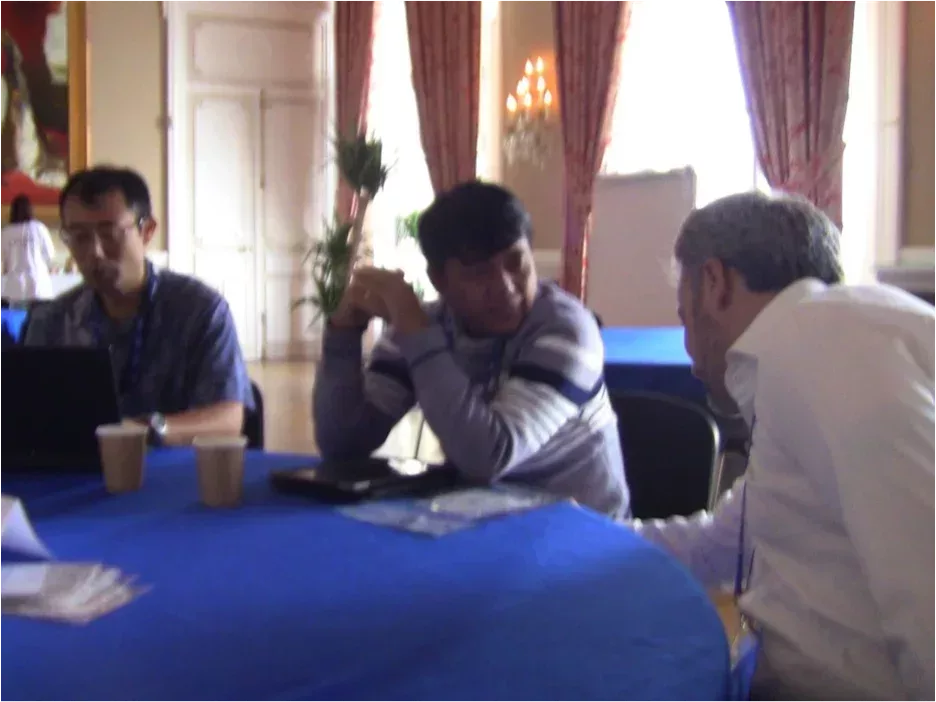ICRI Knowledge Café on Regional Partnerships for Coral Reef Protection Marseille, France, 25 October 2013, 11:45-13:15 Outcomes The International Coral Reef Initiative (ICRI) hosted a Knowledge Café at the 3rd International Marine Protected Congress (IMPAC3) to share experience and lessons in regional cooperation for coral reef protection and management.
The Knowledge Café was chaired by the ICRI Secretariat, with contributors from West Africa (David Obura-CORDIO and Adele de TOMA- Indian Ocean Commission), East Asia (Naoki Amako – Japan and Vobol Ouk, Cambodia), the Caribbean (Helene Souan, CAR-SPAW and Alessandra Vanzella-Khouri, UNEP-CEP), the Pacific (Pio Radikedike, Fiji) and the French Coral Reef Initiative (IFRECOR) which operates in all these regions.
The following initiatives were presented:
- The ICRI East Asia Regional initiative [insert link] – Naoki Amako
- The GCRMN Regional network in the Western Indian Ocean, carried though the program ISLANDS of the Indian Ocean Commission – David Obura and Adele de Toma
- The Regional Lionfish Committee’s work to coordinate a regional response to the lionfish invasion in the Caribbean – Helene Souan
- The network of Locally-Managed Marine Aras (LMMAS) in the Pacific – Pio Radikedike
- The work of UNEP-CEP as a Regional Seas representative for the Caribbean – Alessandra Vanzella-Khouri
- The coordination work of the French Coral Reef Initiative in French Overseas territories in the Caribbean, Western Indian Ocean and Pacific – Pascal Colin.
Participants then discussed main challenges encountered in running their regional initiatives, and agreed on results and recommendations.
Main conclusions/results
Strengthening regional cooperation is crucial to increase effectiveness in investment and to improve management practices and monitoring of coral reefs. It is important to have a good network of active people to rely on for a regional partnership to be functional.
Outstanding new fact
Out of the discussions, the demonstration of connectivity outlined by the lionfish network in the Caribbean case showed how important a network can be for managers. The network indeed allowed managers up North to provide updates on the state of the lionfish invasion to managers located further South, where the invasion was incoming, thereby providing an early warning system which allowed them to be better prepared for the challenge to come.

Challenges for the future
Contributors agreed that main challenges in running a successful regional partnership included:
- The often too short timelines of projects, and the continued dependence on external funding to maintain a partnership active and afloat.
- The divergence in projects which sometimes conflict or overlap, leading to a lack of consistency and continuity which impede on efficient regional monitoring and reporting.
- The lack of understanding, generally, that coral reefs are an integral part of coastal management, not something to be managed on its own.
- The lack of inclusion of some important on-ground managers (such as LMMA leaders) in regional networks and initiatives
- The need to develop an infrastructure to centralise necessary information and data that are already being collected.
- The differences in capacity within a region and shortages in human resources.
Main recommendations
- Find creative ways to maintain interest and build a functional ‘human network’ to sustain regional cooperation – including on-ground, community players.
- Do not rely on individuals, but on institutions with key leaders which are able to provide an infrastructure for the partnership, pool resources to direct them efficiently for shared problems, and foster regional coherence.
- Raise better understanding of ecological connectivity between coral reefs in a region to tailor management accordingly – for example through early warning systems.
- Provide continuous capacity building on technical aspects, including through the dissemination of manuals for practitioners, or regional strategies than can provide a common framework to craft efficient local responses to management challenges.
- Coral reefs should be an indicator of effectiveness of land-based improvements, and integrated to coastal projects and other global programs such as the IOC-UNESO’s Global Oceans Observing System.
- Look to the UNEP Coral Reef Partnership for support to increase regional coherence and international cooperation and collaboration, in line with ICRI’s Framework for Action and other international targets such as Aichi targets 10 and 11.